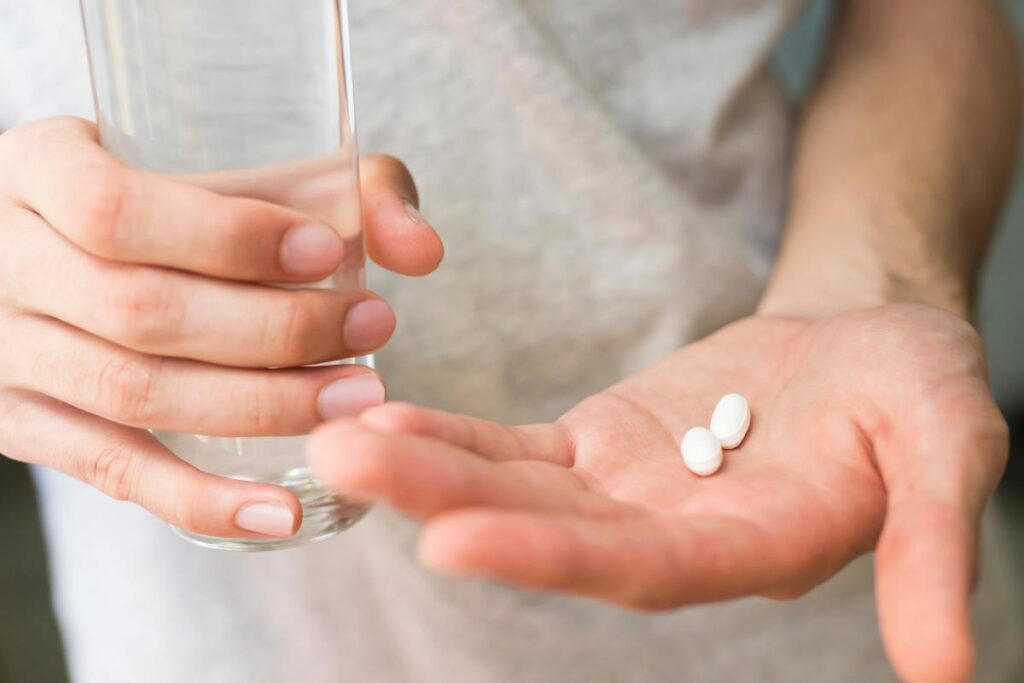In the fight against alcoholism, anti-alcohol drugs can be a powerful tool. Like Prozac was to depression 30 years ago, anti-alcohol drugs are changing the way mental health and medical professionals are treating alcohol addiction. As researchers dive deeper into understanding how these drugs work, evidence shows that each drug is best suited for specific cases.
If you or a loved one are in need of an alcohol detox program, reach out to Promises Behavioral Health today. Don’t wait; we’re here to help.
Types of Anti-Alcohol Drugs and How They Work
There are several different prescription anti-alcohol drugs, but they all share the same function: help you to avoid drinking alcohol to curb your addiction and enter recovery. Some of the most prescribed medications for alcoholism are Naltrexone, Topiramate, Disulfiram, and Acamprosate.
Naltrexone (Revia, Vivitrol)
Naltrexone is an anti-alcohol drug that is used to reduce cravings by blocking the pleasurable effects of alcohol. Typically alcohol triggers endorphin receptors in the brain that give the drinker a pleasurable experience. Naltrexone blocks these receptors so alcohol is no longer the source of good feelings, putting an end to the cycle of pleasure-seeking that results in alcohol addiction. It is available in a daily pill or once-per-month injection. Preliminary research shows that naltrexone works best for individuals with a family history of alcoholism and may also be useful for treating other forms of substance abuse and addiction.
Topiramate (Topamax)
Topiramate is an off-label drug when used for the treatment of alcoholism. It was developed as a seizure medication, but its effects also seem to benefit long-term alcohol users who are struggling to abstain. Topiramate reduces alcohol cravings and, in conjunction with other treatments such as counseling and group therapy, can increase the chances of successful recovery. Though researchers are still investigating how well topiramate works for the average alcohol user, initial findings suggest that it may be most effective for individuals who have tried to quit drinking but have relapsed repeatedly.
Disulfiram (Antabuse)
Disulfiram has been used as a tool in aversion therapy since 1951. While taking disulfiram, the body is unable to metabolize alcohol. Drinking alcohol while taking disulfiram will cause a number of unpleasant side effects, like low blood pressure, headache, dizziness, nausea, and vomiting. Ideally, the side effects will be associated with drinking, and the individual will no longer want to drink. However, some people associate the side effects with disulfiram and simply stop taking the medication. Unlike other anti-alcohol drugs, disulfiram does not treat alcohol cravings.
Acamprosate (Campral)
Acamprosate is an anti-alcohol drug that helps lessen the unpleasant symptoms of alcohol withdrawal. It is an oral pill that should be taken three times per day. Acamprosate is intended to help make abstaining from alcohol for long periods of time more manageable. However, several studies disagree on how well the drug works and who benefits most from taking it. If you think you or someone you know might benefit from anti-alcohol drugs, talk to your doctor about your treatment options and which may be best for you.
The Long-Term Effects of Alcohol Abuse
When alcohol abuse is not addressed or dealt with, your health and appearance decline. Long-term alcohol abuse is associated with obesity, heart disease, and a higher risk of certain types of cancer, as well as an increased risk of heart attack, stroke, or liver cirrhosis. Alcohol can affect the brain’s chemistry and functionality, leaving you at risk of serious falls or seizures.
Aside from the physical effects, alcoholism can also destroy your close relationships, career, or self-worth. It is vital to know that help is available, and all you need to do is take the first step toward recovery by reaching out to an alcohol addiction treatment center.
Break Alcohol Addiction at Promises Behavioral Health
When you’re ready, our caring and professional staff is waiting to assist you every step of the way, from intake and detox all the way through treatment and aftercare. Please reach out to us today at 844.875.5609 to learn more about our alcohol addiction treatment services and how we can help you.

